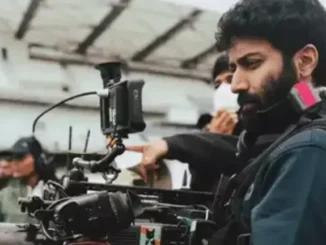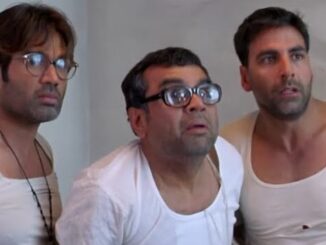
Critically acclaimed actor Pankaj Tripathi, who has won hearts across the country with his grounded performances and nuanced portrayals, recently delved deep into the philosophy behind his craft. In a candid conversation, the versatile actor spoke about the profound influence his roots in Bihar have had on his journey — both as an artist and as a human being.
With an unmatched ability to breathe life into characters from all walks of life — whether it’s the menacing Kaleen Bhaiya from Mirzapur or the soulful Atma Singh in Newton — Tripathi credits much of his authenticity and emotional depth to his upbringing in the heartland of India.
“We are not born artists,” he said thoughtfully. “We become them through our lived experiences. In that sense, I often feel we are just puppets — guided and molded by what we’ve seen, felt, and absorbed from the world around us. For me, that world was Bihar. And it continues to speak through every role I play.”
Raised in the small village of Belsand in Gopalganj district, Pankaj Tripathi’s early life was marked by simplicity, discipline, and a close-knit connection to nature and tradition. His father was a farmer and a priest, and the young Tripathi grew up with a strong sense of community, responsibility, and storytelling — often drawn from mythology, folklore, and rural wisdom. “Those stories from the elders, the silences of the fields, the sounds of temple bells, the texture of soil on your hands — they all left impressions on my mind, far more powerful than any textbook ever could.”
Tripathi revealed that this intimate connection with his surroundings gave him a unique lens to view the world — one that continues to influence how he understands characters, especially those rooted in socio-political realities. “Acting, for me, is not about imitation. It’s about honesty. And that honesty comes when you’ve lived a life where emotions are unfiltered, where you’ve seen pain without theatrics, joy without embellishment, and struggle without complaint.”
He recalled how, even before he stepped into the world of cinema, his time in Bihar served as an unspoken school of human behavior. “When you live in a village, you observe everything — not through screens, but with your own eyes. You see the body language of a laborer returning home after 14 hours of work, the hesitation in a young girl’s voice when she speaks in front of elders, the pride of a mother whose son is the first to go to college. These are your textbooks.”
Pankaj, who trained at the National School of Drama after years of theater in Patna, shared that while formal training gave him tools, it was his lived experience that provided the foundation. “No training in the world can give you what real life does. You can learn diction, camera techniques, and posture — but empathy, sensitivity, timing, and silence… those come from life.”
Despite achieving stardom, Tripathi has always stayed connected to his roots. He frequently visits his hometown, supports local causes, and often incorporates his knowledge of dialects and local customs into his roles. “When I play a character from rural India, I don’t have to imagine their reality. I have lived it. I know what the air smells like, what people eat when there’s no money, how pride works even in poverty. Bihar gave me that.”
He also touched upon the misconception that actors from small towns lack sophistication. “On the contrary,” he said, “we carry with us the richness of layered experiences, of cultural depth, of emotional memory. Bihar didn’t just shape my speech or my worldview — it taught me patience, humility, and the value of silence, all of which are tools every actor must possess.”
In an age where many actors struggle to disconnect from the glamour of fame, Pankaj Tripathi’s groundedness serves as a refreshing reminder of where true artistry begins — not in the spotlight, but in the shadows of lived experience.
Closing his reflections, the actor said, “We may travel the world, perform on grand stages, and play a hundred roles, but somewhere, we are all telling stories that began in the villages, homes, and moments that raised us. In my case, Bihar is not just a place I come from — it is the soul that breathes life into everything I do.”



